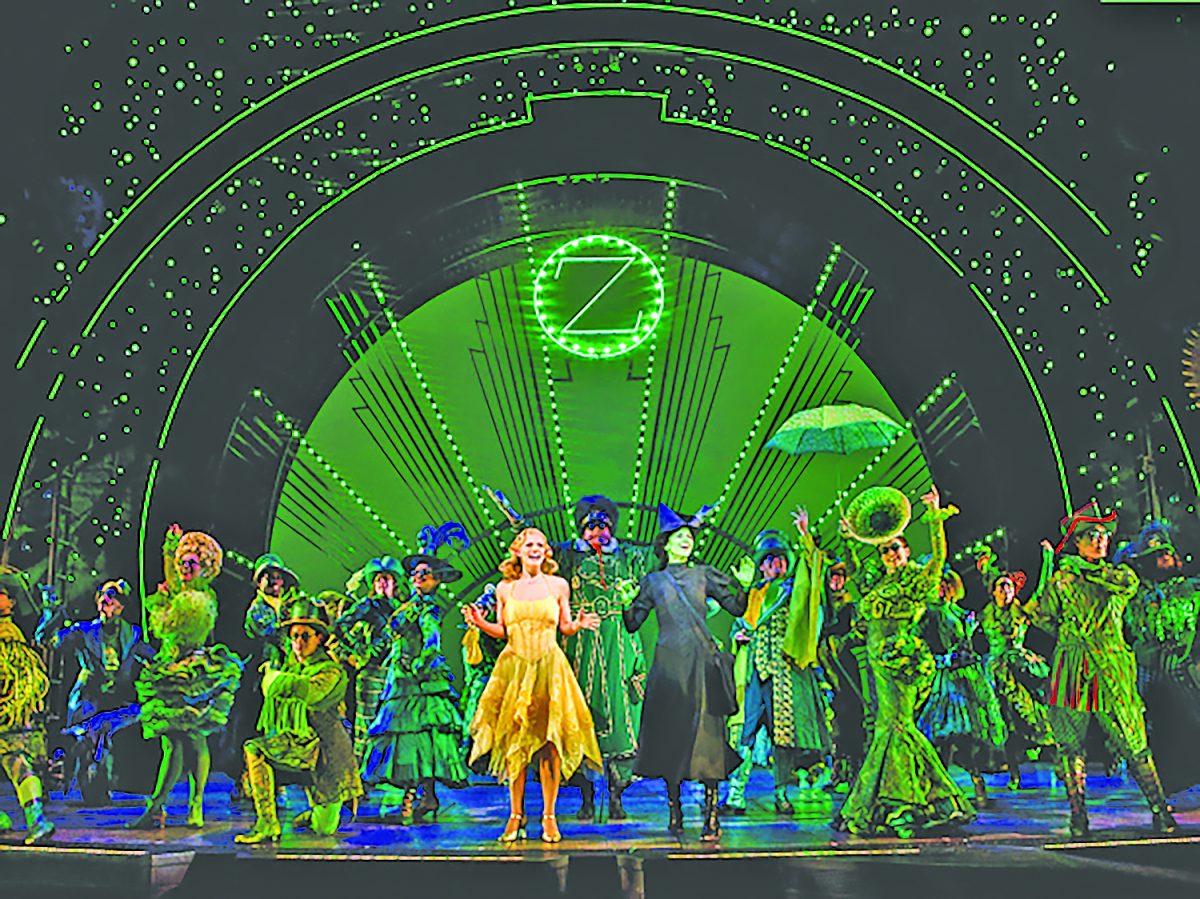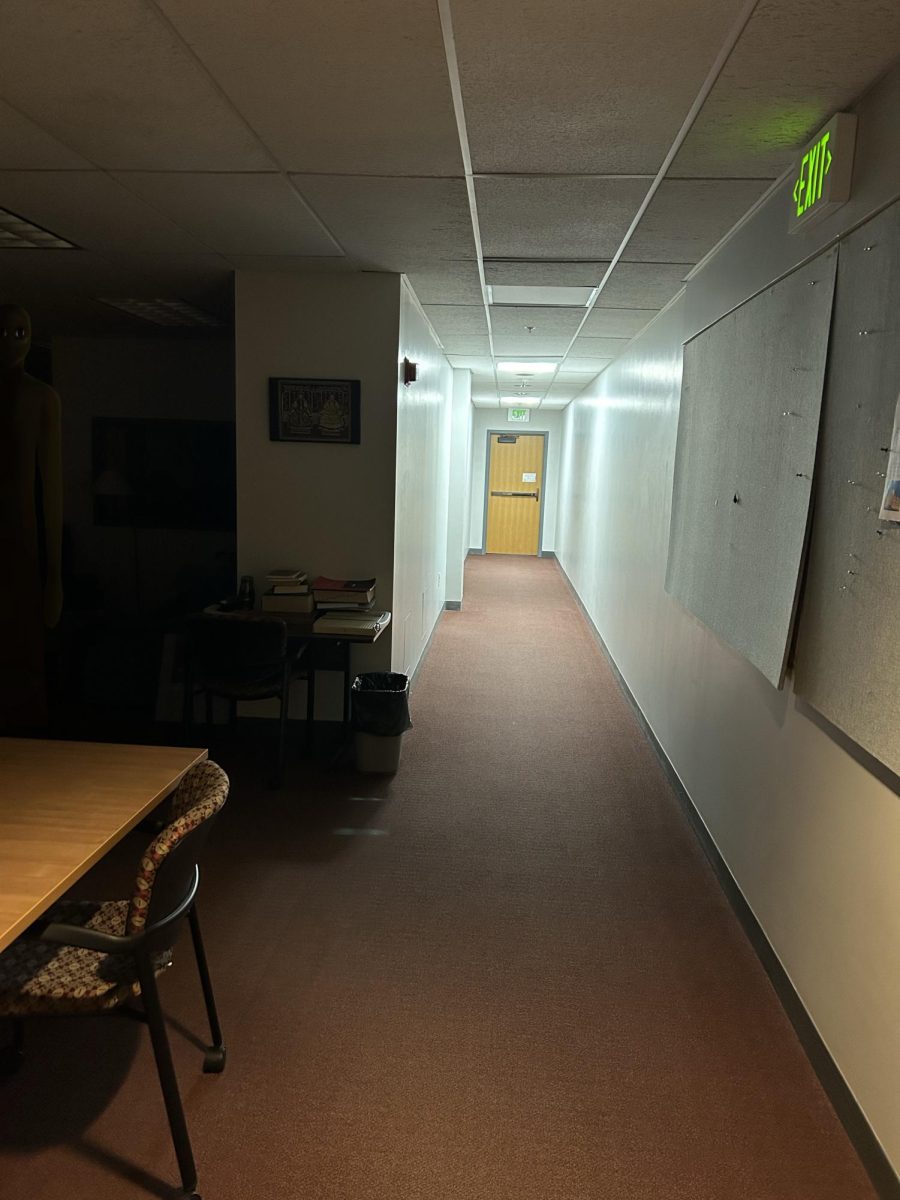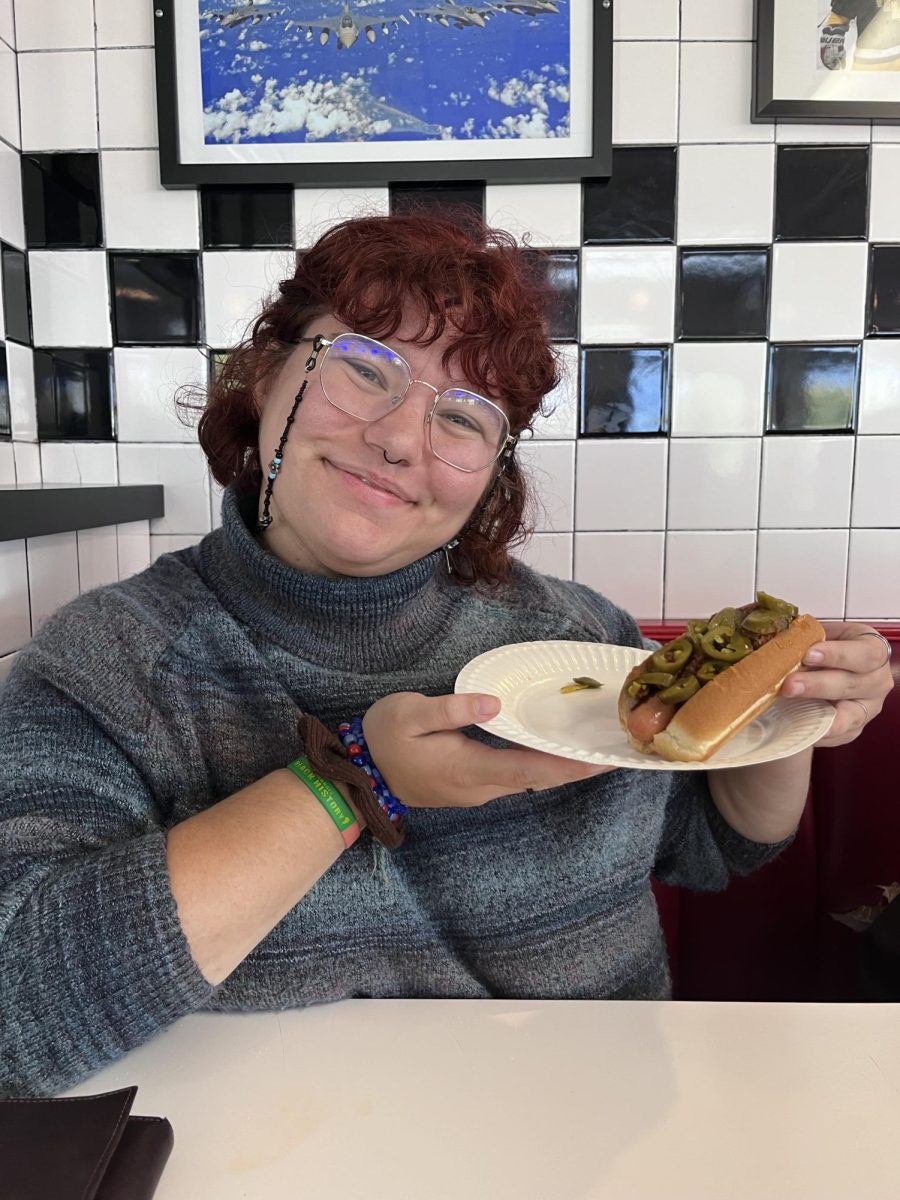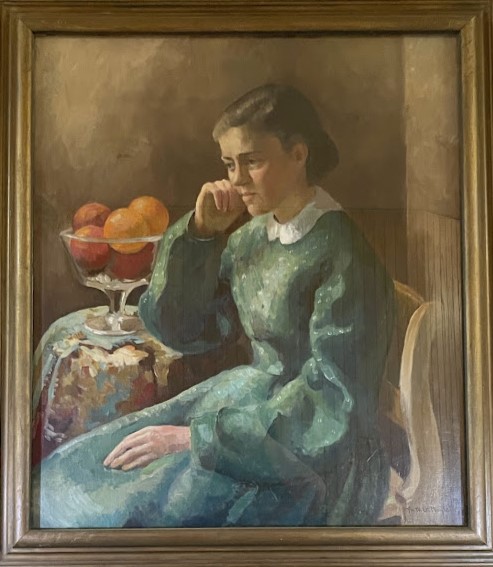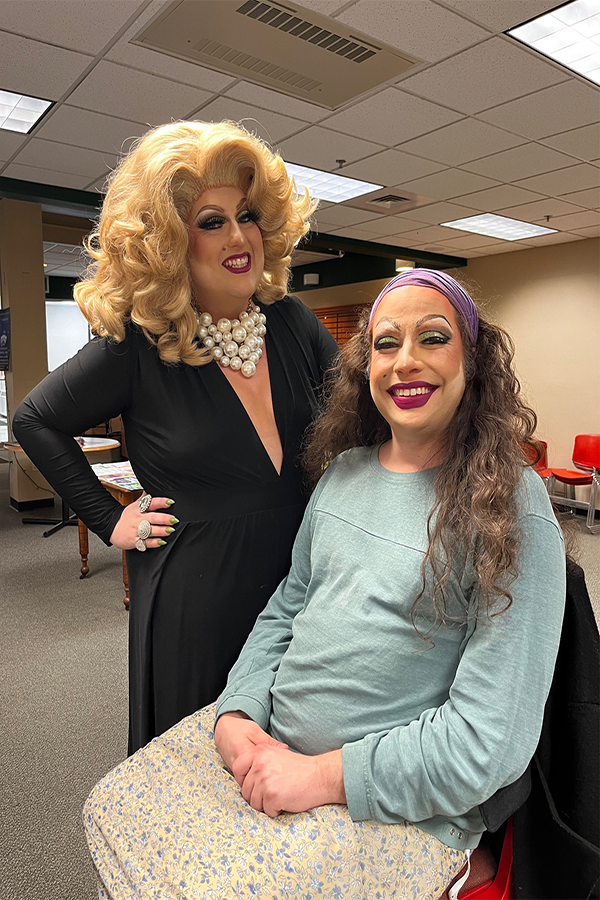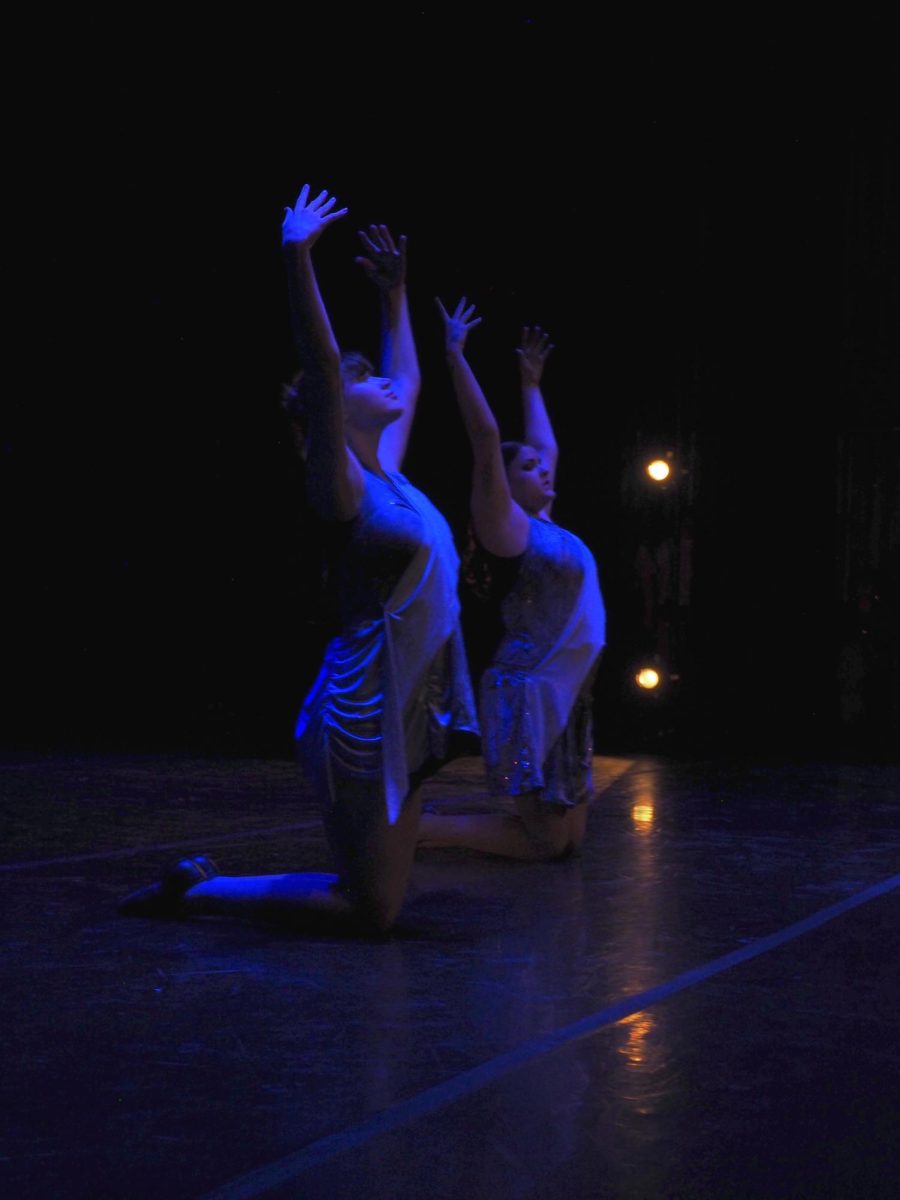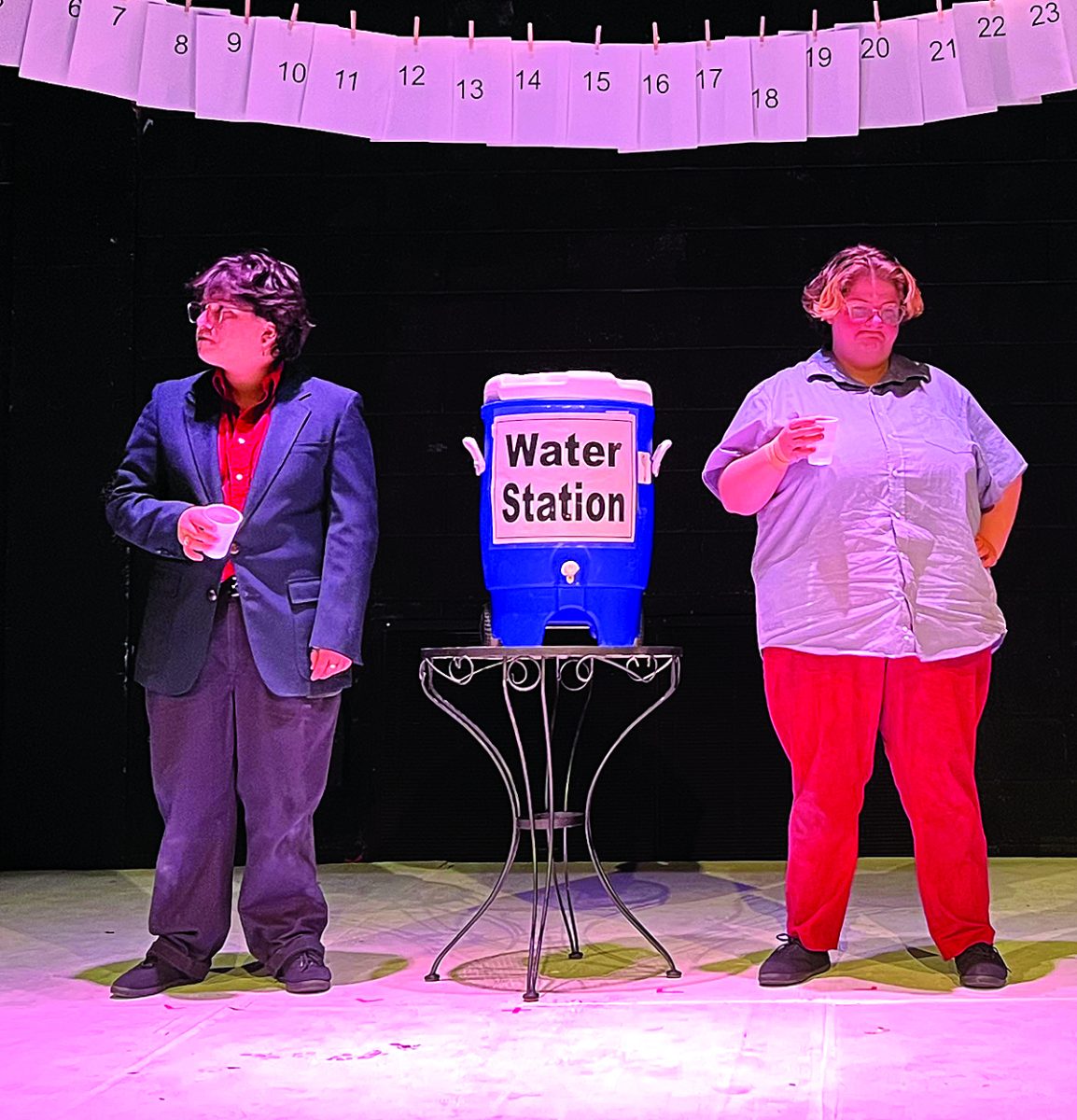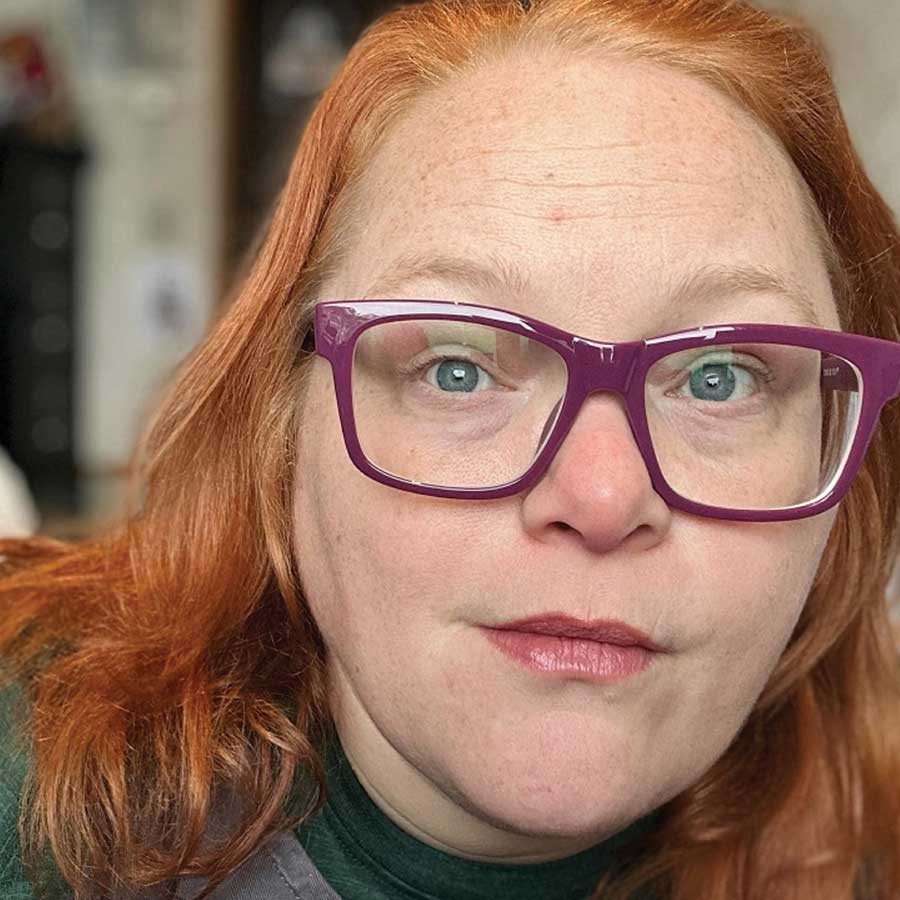A spotlight shone center stage, illuminating a empty stool. A timid woman portraying a young girl entered stage right.
Students packed the Dibden Center for the Artson Wednesday Feb. 20 to see a one-woman performance of “The Secret Life of Bees” by Sue Monk Kidd, adapted for the stage by Wynn Handman. American PlaceTheatre has been performing this story with actress Denise Wilbanks through seven different scripts over nine years. The show started with a 15-minute discussion about civil rights, and it wrapped with a discussion of how the issues in the play remain relevant.
“The Secret Life of Bees” is a story set in the South during the civil rights era. Lily is the main character, a 14-year-old girl raised by her abusive father, a peach farmer. Lily struggles with her own identity. Wilbanks perfectly embodied the character’s youthfulness, donning pigtails, a flannel shirt, rolled-up overalls, high socks and Mary Janes.
Through the show, Wilbanks only used one prop: a stool. This forced the audience to use their imaginations to follow Lily through her turbulent adventures as a confused young girl.
Wilbanks expertly portrayed not only Lily, but a total of 12 characters throughout the play, bringing a distinct voice and demeanor to each.
For T-ray, Lily’s father, Wilbanks used a rough, gravely tone and deep Southern accent.
For the shopkeeper, who appears when Lily first arrives in Tiberon, South Carolina, Wilbanks slouched and put on a loud, enthusiastic Southern accent, rotating her hips as she rubbed her imaginary beer belly.
“I never want to see a video of myself doing that,” said Wilbanks at the end of the show, which earned chuckles from the audience.
For the three beekeeping sisters, Wilbanks used the distinct tones of sandpaper rasp usually associated with elderly Southern women.
Other characters played by Wilbanks included a police officer, Lily’s housekeeper and three entitled white men.
At the start of the play, Lily runs away from home to Tiberon after an altercation with the police – for standing up for her black friend.
When Lily arrives in the small town, she goes to the home of beekeepers, where she feels a strong connection to her mother. The beekeepers take her in. Lily later learns that her mother, who later abandoned her daughter and husband, had lived there as a child.
The three sisters who own the bees are African-American. For the first time in her life, Lily struggles with racism when one of the sisters doesn’t want her to stay because she is white. This is a “marvel” for Lily because she has never in her life been rejected for being white.
As the story progresses, Lily learns more about her mother and herself. It becomes clearer where Lily came from and where she is going as she grows from a timid child into a knowledgeable woman.
By the end of the play, Lily has learned many things about herself, truths both good and bad. The same is true for Wilbanks.
“I learn new things about Lily every time I perform this story,” she said.




